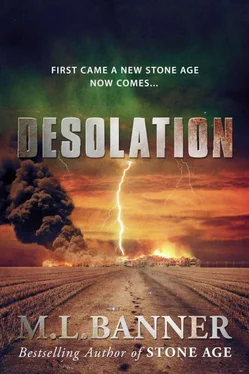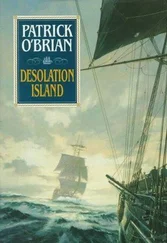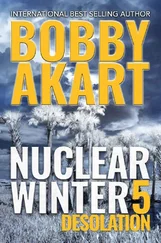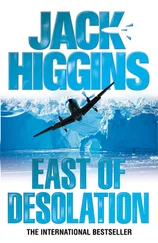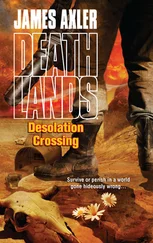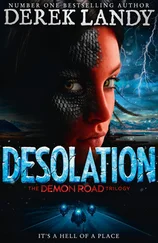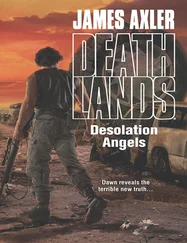Wright Ranch
“Your dad’s infection is getting worse,” Wilber Wright said to Steve Parkington, laying a hand on the younger man’s shoulder and giving it a gentle squeeze. “If we don’t get him some antibiotics and maybe even medical attention soon, I’m not sure he’ll pull through. I just don’t have the medical skills or supplies to help him any further.”
“Fine, what about the town? Wouldn’t they have a pharmacy or a hospital?” Steve pleaded with Wilber, who had informed him two days ago when the infection started that he had only penicillin. He remembered vividly hearing from his mom how allergic his dad was to this. There had to be an alternative somewhere in town.
“You know the situation about as well as I do,” Wilber said. “None of my vehicles work. They were all damaged from the same solar flares that knocked out the power in your plane¸ and everywhere else. We don’t have a hospital, just a clinic with one doctor.”
“Well, I’ll go then. It can’t be too far of a walk.”
Wilber stood up and rubbed the strain from his knees, aching from being bent beside John for the past few minutes studying him and his vitals. After Wilber had found the men crashed on his land ten days ago, he and Steve had carried John up to the house. Wilber had tended to the gash on John’s head and a larger one to his leg using his two-pound fishing line. Although he’d lost a little blood, it shouldn’t have been enough to cause this. He should be getting better, but somehow he got an infection.
He knew basic EMT stuff like field dressing wounds, but that was it when it came to medicine. Being a farmer, over the years, he had administered emergency medicine to his animals, including his pigs, whose anatomy he found was quite similar to humans’.
“Aw shit, let’s go then. You’re coming with me,” Wilber grumbled in frustration.
~~~
Steve hadn’t ridden a bicycle in years, he said, especially not a kiddy bike. It was Wilber’s son’s bike, which he grew out of last year. He snickered a little, in spite of the seriousness of their mission, at Wilber reciting his wife, Olivia’s statement on not having a bike: “I don’t care if there are no cars after the apocalypse; I’m not getting on no damn bike.”
Steve had to pedal twice as fast as Wilber in order to keep up. But they hoped their trip would be fruitful and the town’s doctor could be talked into coming with them or at least sparing some antibiotics if the pharmacy had not been emptied already.
Wilber wanted to stock up on a few supplies, too, since John’s injuries had used many of his bandages and he realized he needed something other than fishing line to suture up bad cuts. He was curious to get a sense of what was going on in town, which might tell him how much time he had before the violence started. It was a small town of fewer than a hundred people, many of whom were retired or worked at the Dresden nuclear power plant, about forty miles north. There was no industry to speak of. The economy was mostly fueled by dollars brought in by I-55, such as drivers looking to score fresh apple pie from Annie’s Apple Orchard or filling their empty gas tanks at McGuire’s.
Wilber tried to prepare for every eventuality on this visit. They brought cash to buy their supplies. But, if cash was no longer accepted, he brought some canned food to barter with, mostly O’s canned peaches and strawberries. If they ran into any trouble, both he and Steve carried guns. He had been reluctant to give one to Steve, but after taking him out back to fire a couple of rounds, he figured the boy seemed competent and level-headed enough to be trusted with it. Wilber was taking a risk, but he might need backup.
“How are you doing back there?” Wilber asked, barely winded, as he glanced over his shoulder at the young man trying to match his pace.
“I’m… fine… thanks,” came the strained reply behind him. Wilber allowed himself a small smile.
After crossing the highway from his long dirt road, they came to a T-intersection, where Wilber abruptly squeezed the hand brakes. He squealed to a stop before a barricade, which blocked the road into town. A hand-painted sign read “No visitors welcome. We don’t have any food.”
“Not very friendly around here, are they?” Steve asked, out of breath, as he pulled up beside Wilber.
“This is happening quicker than I feared,” Wilber said a bit flatly, already steering his bike around the barricade.
They passed the road sign announcing “Fossil Ridge, established 1928” and headed into town.
Somewhere in Western Nebraska
“Stay with me, Conrad. Don’t you die on me!” Dr. Melanie Sinclaire yelled at the supine man between counting out chest compressions. She was already doubtful of his survival; he had lost so much blood from injuries he sustained in the crash. How many days ago, now?
Deciding to change tactics, she barked, “You lazy asshole, don’t you leave me alone here!” She was speaking some truth because she didn’t want to go it alone. But she was also shooting for the moon knowing Conrad was a chauvinist who for the last several days had acted very protective of her. She had thought the bleeding stopped and that he was on the mend, but a day ago his condition changed. He looked peaked, as if death already had its grip on him. Then this morning, when some throaty rooster broadcast the new day, she found Conrad unconscious, not breathing, and with no heartbeat.
1-2-3-4-5. She continued to push rhythmically on his chest. 6-7-8-9-10. Her shoulders and arms were pistons in an organic engine—1-2-3-4-5—not stopping for maybe fifteen minutes. 6-7-8-9-10. Over and over again (1-2-3-4-5) she went through the count unabated (6-7-8-9-10). Exhaustion and the buildup of lactic acid in her muscles slowed her and made her a bit faint (1-2-3-4-5) but what other option did she have? (6-7-8-9-10) The chance of reviving someone by chest compressions was one in a thousand. (1-2-3-4-5) A bluish tint blossomed in his face. (6-7-8-9-10) She could see further signs of lividity creeping up from where his bare shoulders touched the ground. She stopped, feeling for a pulse she knew she wouldn’t find. Picking up his arm, she confirmed the purplish discoloration.
He was gone.
Right in the middle of bum-hoot Nebraska, in the abandoned shed he had been resting in for the last few days, she collapsed on the floor, her chest heaving for air.
They were all gone. Every one of her crew had died, and she was the only one left. R.T. was most likely dead by now on the space station; four of her crew most certainly burned up on re-entry in the other capsule; Dee Winters never woke up from their crash; and now, Conrad Stutz. He had been pretty banged up and Melanie had had to pull a giant piece of shrapnel out of him.
She continued to breathe heavily, staring at the holes in the roof of the little ten-by-ten shed, as tiny particles of dust danced in the beams of light piercing through them. Probably she should be more affected by watching everyone she knew die, but she wasn’t. Was she that spent physically and emotionally or was she “the cold heartless bitch,” as a fellow NASA astronaut and scientist called her when she beat him out for the ISS mission?
“You wanna trade now, you prick?” she hollered at the perforated ceiling. Her voice sounded hollow and broken, like her spirit.
She had no one left. No family, no friends to speak of, and no colleagues either, as she was out of the NASA game until they could get the power back on. She was utterly and completely alone.
What now?
“Why Rhett, where shall I go? What shall I do?” She started to snicker, quoting the line from one of her favorite movies.
Читать дальше
